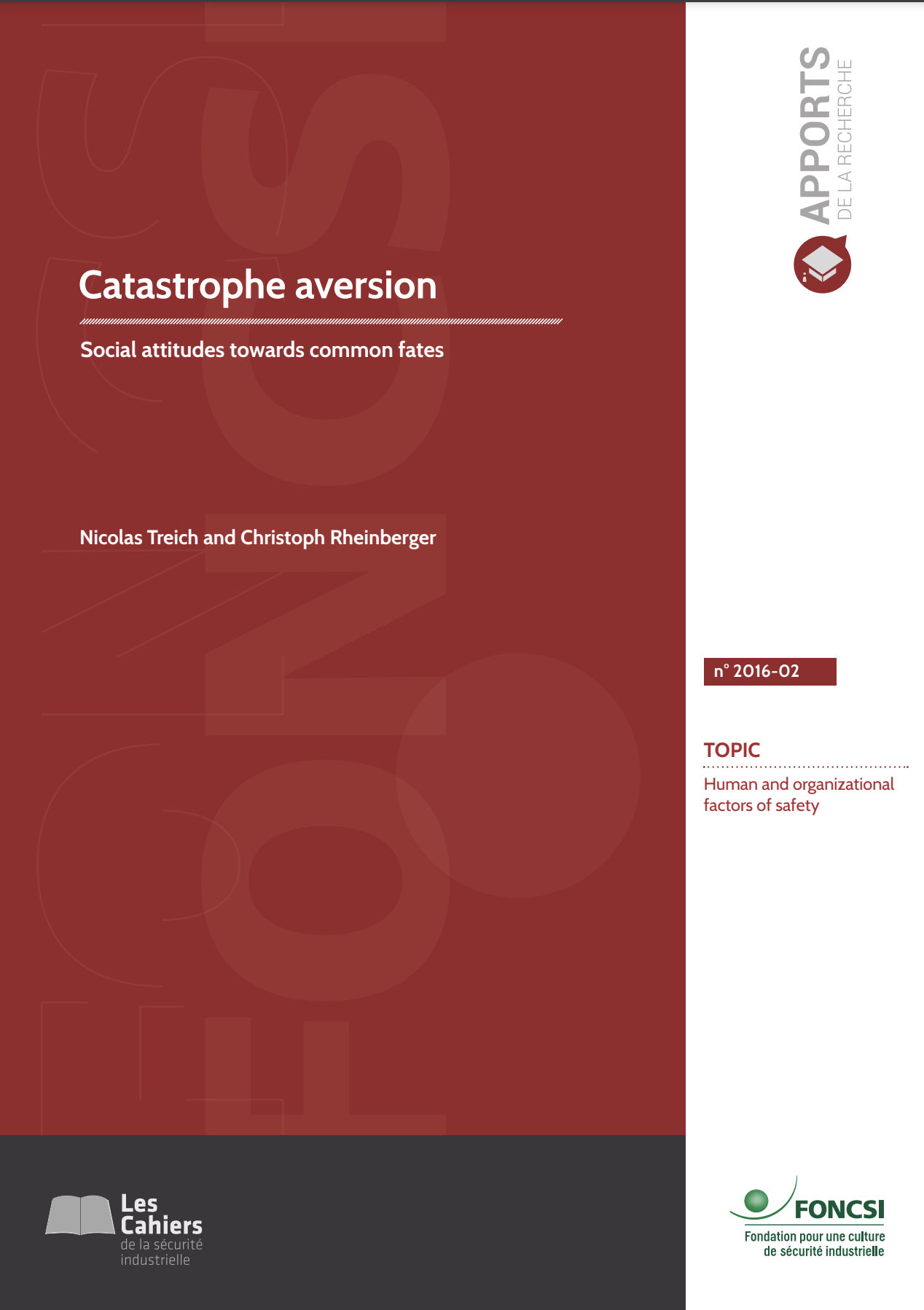Catastrophe aversion — Social attitudes towards common fates
Decision-making under uncertainty
Industrial Safety "Cahiers"

Abstract
In light of climate change and other existential threats, policy commentators sometimes suggest that society
should be more concerned about catastrophes. This document reflects on what is, or should be, society’s attitude
toward such low-probability, high-impact events. The question underlying this analysis is how society considers
- a major accident that leads to a large number of deaths;
- a large number of small accidents that each kill one person
where the two situations lead to the same total number of deaths.
We first explain how catastrophic risk can be conceived of as a spread in the distribution of losses, or a “more
risky” distribution of risks. We then review studies from decision sciences, psychology, and behavioral economics
that elicit people’s attitudes toward various social risks. This literature review finds more evidence against than
in favor of catastrophe aversion.
We address a number of possible behavioral explanations for these observations, then turn to social choice theory
to examine how various social welfare functions handle catastrophic risk. We explain why catastrophe aversion
may be in conflict with equity concerns and other-regarding preferences. Finally, we discuss current approaches
to evaluate and regulate catastrophic risk, with a discussion of how it could be integrated into a benefit-cost
analysis framework.
Most publications are licensed under the Creative Commons BY, information available in the document. See the reproduction conditions.





